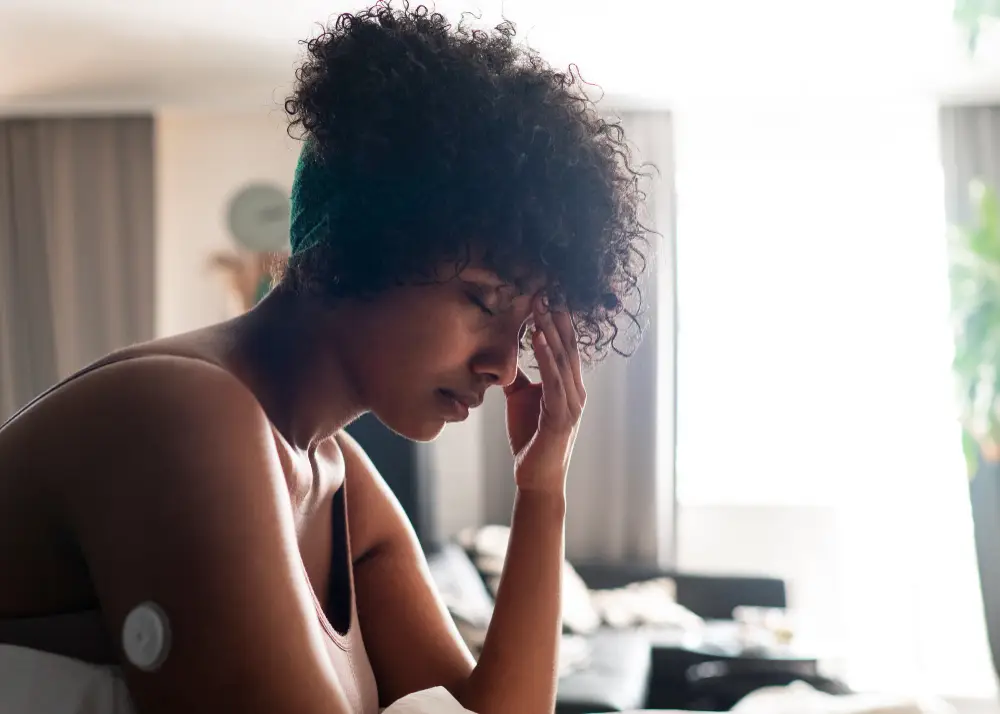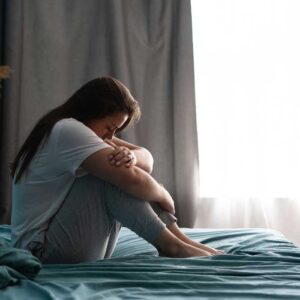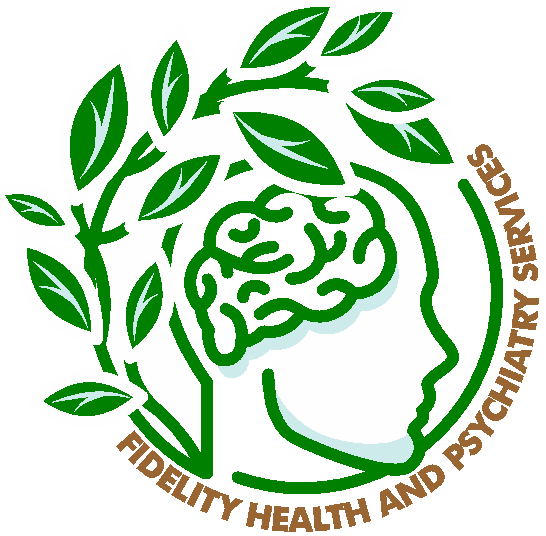Anxiety is the most common psychiatric diagnosis among women, affecting nearly one in three. It can surface at any point in a woman’s life, triggered by anything from too much caffeine to larger global issues. One significant contributor to anxiety in women is hormonal imbalance.
Hormonal fluctuations, a frequent occurrence in women, can lead to various health conditions, including anxiety.
In this article, we will explore in detail how hormonal changes affect anxiety in women.
Symptoms and Signs of Hormonal Imbalance in Women
Anxiety is the most common symptom of hormonal imbalance, especially among women, as their emotional and mental health is deeply influenced by different hormones.
Here are some common symptoms of hormonal-related anxiety:
- Irregular menstrual cycles
- Weight gain and bloating
- Anxiety and depression
- Difficulty focusing and fatigue
- Loss of libido
- Adult acne
- Excess body or facial hair
- Excessive hair loss
Hormones That Can Influence Anxiety in Women
Various hormones can trigger anxiety when their levels become imbalanced. Understanding these hormones can help you recognize their effects on your body.
Estrogen
Estrogen is a key sex hormone, and its fluctuations can significantly affect mood. Rapid changes in estrogen levels, especially during the menstrual cycle, can elevate anxiety. Estrogen levels rise in the follicular phase (the first two weeks of the cycle) but drop during the luteal phase if fertilization doesn’t occur, which can heighten anxiety symptoms.
Oxytocin
Known as the “love hormone,” oxytocin helps lower anxiety, stress, and aggression. Activities like cuddling, sexual intimacy, and even breastfeeding increase oxytocin, providing a calming effect.
Cortisol
Cortisol, the stress hormone, is produced when the body senses danger or stress. When cortisol levels are too high, especially during ongoing stress, it can exacerbate anxiety.
Thyroid Hormone
An overactive thyroid (hyperthyroidism) can lead to restlessness and anxiety, while an underactive thyroid can cause fatigue and depression. Studies have shown that thyroid inflammation increases the risk of anxiety disorders.
Balancing Hormones to Reduce Anxiety
If you suspect hormonal imbalances are contributing to your anxiety, here are some ways to help restore balance:
- Exercise regularly to lower cortisol and increase endorphins, which reduce anxiety.
- Engage in relaxation techniques such as yoga or meditation to manage stress.
- Maintain a healthy diet rich in fiber and fermented foods, which support mental well-being.
- Avoid excess caffeine, which can elevate stress hormones.
- Get enough sleep, as poor sleep patterns disrupt hormone levels.
- Consult a healthcare professional for personalized advice on managing hormonal anxiety.
Conclusion
Hormonal changes can have a significant impact on anxiety in women. Recognizing the symptoms and understanding the underlying hormonal causes can help in managing anxiety effectively. If you suspect your anxiety is linked to hormone fluctuations, consult with a doctor to explore treatment options.
Related Questions
Which hormones can cause anxiety in women?
Key hormones like estrogen, oxytocin, cortisol, and thyroid hormones can contribute to anxiety.How can I balance hormones to reduce anxiety?
Regular exercise, a healthy diet, meditation, and sufficient sleep are all effective ways to balance hormones and reduce anxiety.Can hormonal imbalances cause panic attacks?
Yes, imbalances in hormones such as estrogen, testosterone, and cortisol can trigger panic attacks.How long does hormonal anxiety last?
Hormonal anxiety can vary from person to person but can persist for years until hormone levels stabilize.





